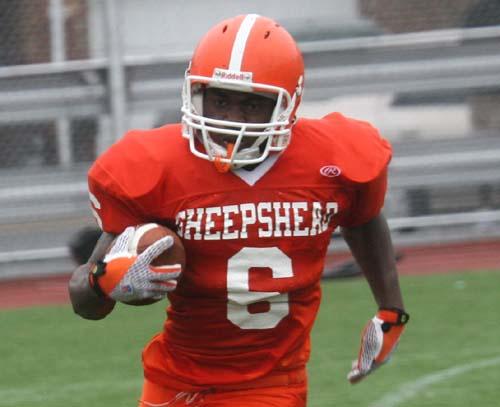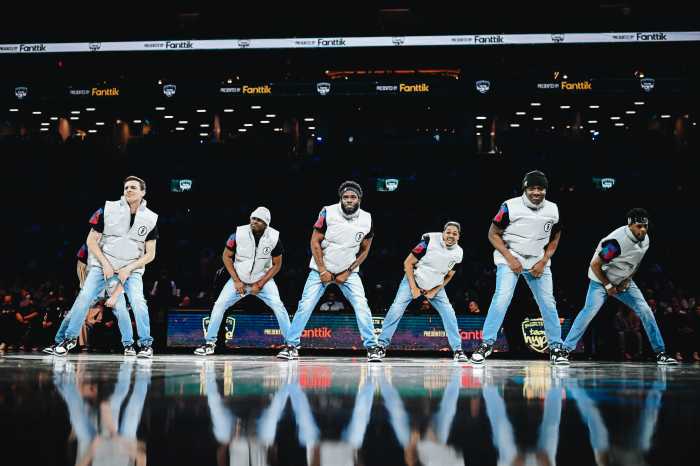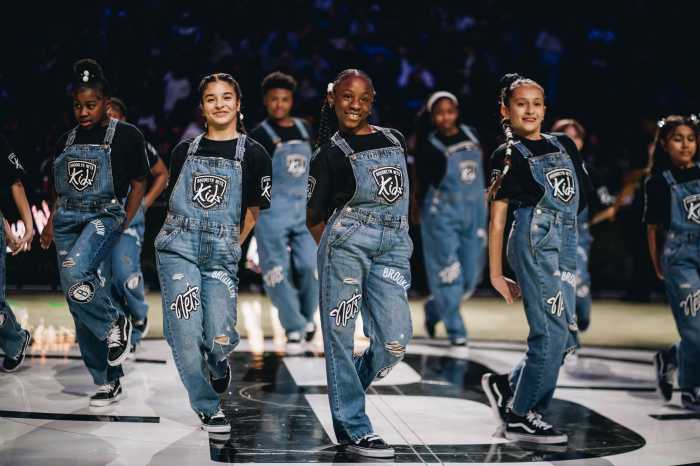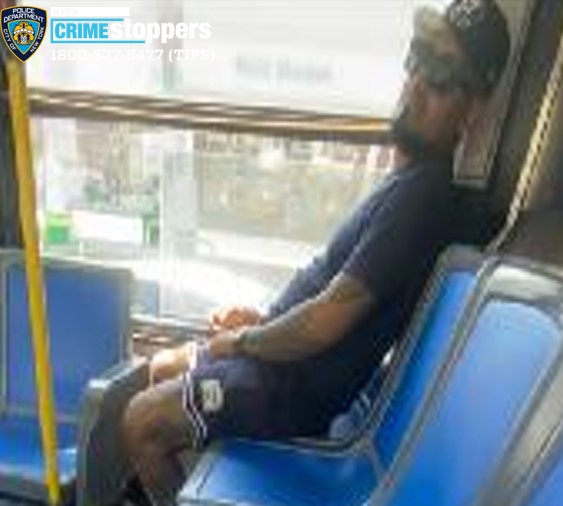Ayo Isijola leads the city in rushing yards and is among the league leaders in touchdowns. He has been offered a full scholarship by Hofstra. Cornell came to visit him. Rutgers and UConn are duly interested, and may offer sometime this winter.
The Nigerian-born running back is enjoying quite a senior year, one of the leaders on Sheepshead Bay, an established power that will meet Boys & Girls in the PSAL quarterfinals Saturday at noon.
But unlike countless other gridiron stars, he knew virtually nothing of the sport when he walked through the school’s doors as a freshman. He didn’t even play football that year, instead running track & field, where he was part of the 4×100 national champion relay team last spring.
“That’s incredible,” junior running back Devontai Carlie said.
Isijola, 18, whose entire name – Ayo Ishola Isijola – means happiness and joy in Nigerian, grew up playing soccer in his homeland and picked up basketball when he came to America at the age of 13 and settled with his mother, Yinka, a nurse’s aid, in the Flatbush section of Brooklyn. In junior high school, he was introduced to football, playing it in the school’s playground.
The 5-foot-10, 185-pound muscular senior went out for the junior varsity team at Sheepshead as a sophomore, knowing only that he wanted to score touchdowns. The first day, Isijola said, putting the equipment on was odd. His helmet felt too tight, his shoulders pads too warm. He was nervous.
He rarely talked in practice, except to ask basic questions about penalties and how to take a handoff. His teammates almost immediately dismissed him. He could barely keep hold of the ball and didn’t know any of the rules. In one game, when a kickoff caromed off a teammate, making it a live ball, he stared at in amazement as the opposition recovered. His coach, Thomas Vitola, yelled at him.
“He didn’t know what to do,” Carlie recalled.
Quickly, he silenced the doubters, scoring 24 touchdowns in eight games while averaging over 20 yards per carry, running for 1,195 yards and returning two kickoffs and one punt for scores.
“I learned from experience,” he said.
But like so many underclassman that starred on JV, his introduction to varsity wasn’t so pleasant. He injured his ankle in the first game and quickly lost confidence. The game was faster, the hitting harder. There was less time to adjust, but more time on the bench.
“Everything,” Isijola said, “went wrong.”
But Sharks coach Fred Snyder never lost confidence in him. The longtime coach had noticed his speed and vision on the JV, and knew it hadn’t suddenly vanished. Plus, he didn’t fall into the trap that catches so many track stars – he didn’t lose his mind-blowing speed after that first big hit.
“I took that he never played football before,” Snyder said. “He was learning. He came back and worked really hard.”
Isijola spent four hours a day this summer working out, lifting weight, doing drills to improve his footwork and took part in the Big Apple Games at Sheepshead Bay.
“The way he works, he deserves what he gets,” Snyder said.
Isijola learned the intricacies of his position, slowly but surely. He realized that he didn’t have to run full speed on every play. There were time to use his blockers, to patiently wait for the hole to open up. Football is a team sport; he wasn’t on his own.
“You need more than speed,” Isijola said. “I used to think speed kills. But you need to know how to use your speed.”
Isijola still uses that speed to the best of his abilities, particularly on his favorite play, the pitch out wide. He virtually won the Sharks’ opening-round playoff game over Bayside, a 42-12 victory, himself by rushing for 229 yards and three touchdowns, one of which turned a tie game into a rout.
Beyond the many positives his future holds, football has opened up his present. It gave Isijola confidence in a foreign land. He has an 85 average and recently took the SATs. College coaches are knocking on his door and a run at a possible city championship awaits.
“I can’t believe where I am,” he said. “I was just a regular kid. Without sports, I would be on the streets.”
























